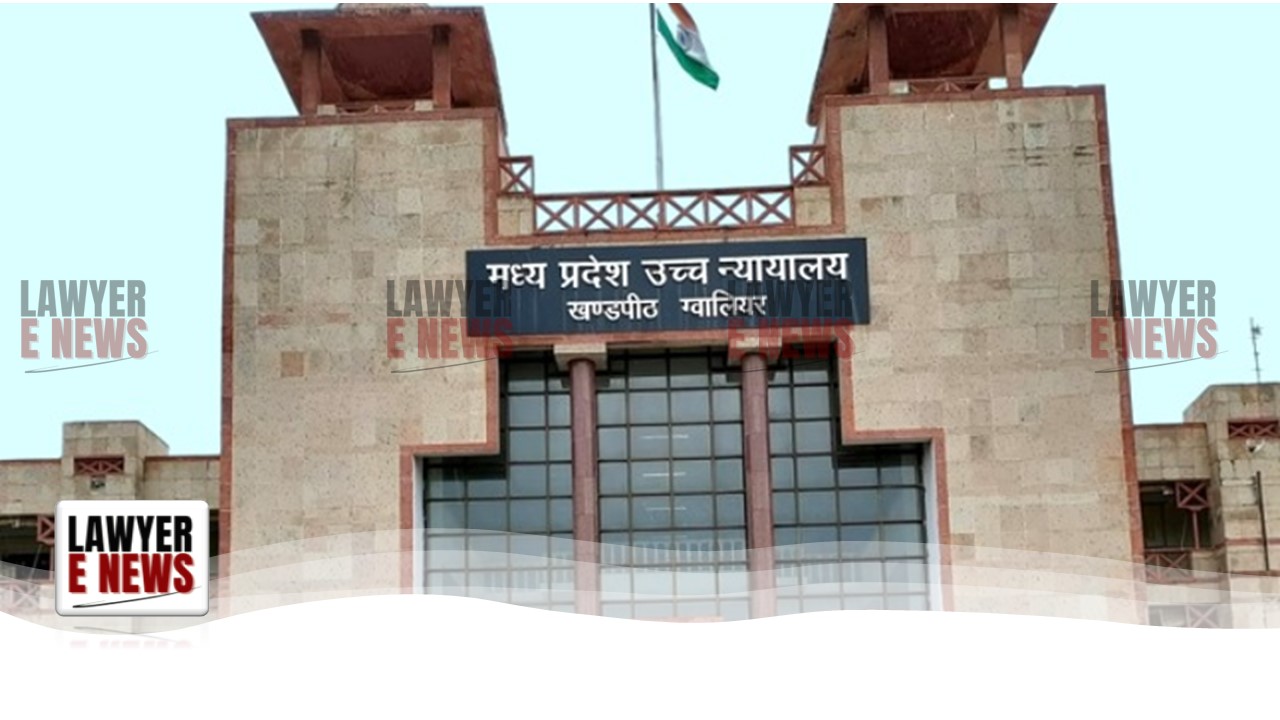-
by Admin
15 February 2026 5:35 AM



Madhya Pradesh High Court set aside the Arbitration Tribunal's order dismissing a contractor's claim as time-barred under the Madhyastham Adhikaran Adhiniyam, 1983. In a significant ruling High Court underscored that the limitation period under Section 7-B(1) of the Act should be interpreted considering mutual agreements and practical delays.
The petitioner, M/s JMC Taher Ali Joint Venture, had undertaken a contract for raw water pipeline works with the Indore Municipal Corporation. After disputes arose regarding price escalation deductions, the matter was referred to a Dispute Board under the contract’s general conditions. However, delays in adjudication and lack of resolution of certain issues led the petitioner to approach the Madhya Pradesh Arbitration Tribunal on January 10, 2014. The Tribunal dismissed the reference on January 31, 2017, citing that the claim was barred by limitation under Section 7-B(1) of the Adhiniyam.
The High Court highlighted that the Dispute Board had extended the adjudication period with the mutual consent of the parties, an essential factor overlooked by the Tribunal. The Court observed:
"The Project Manager extended the time for the Dispute Board, and neither party objected, demonstrating implied consent for the delay. This mutual agreement effectively reset the timeline for filing a reference."
Section 7-B(1) prescribes a one-year limitation period for filing a reference petition after a dispute decision by the final authority or six months after the final authority’s inaction. The Tribunal interpreted this provision rigidly, disregarding the extended timeline agreed upon during the Dispute Board proceedings.
The Court emphasized a purposive interpretation, stating:
"Limitation must not become a tool to deny justice, especially when procedural extensions are agreed upon by the parties involved."
The respondent, Indore Municipal Corporation, argued that the limitation principles upheld in earlier rulings such as Rajawat & Co. v. State of M.P. and Manoharlal Arora v. State of M.P. barred the claim. However, the Court rejected this view, noting that these precedents did not account for mutually extended timelines or delayed communications.
The Madhya Pradesh High Court ruled that the Arbitration Tribunal erred in dismissing the claim as time-barred and remanded the matter for adjudication on its merits. It clarified:
"Constructive extension of time, tacitly agreed upon by parties, validates the petitioner’s filing within the permissible timeframe. Denying access to justice in such cases would undermine procedural fairness."
The Court also directed the Tribunal to expedite proceedings and adjudicate the substantive issues without further procedural delays.
ConclusionThis judgment underscores the importance of balancing procedural rigor with practical realities in dispute resolution, ensuring that technicalities do not obstruct substantive justice. The decision reinforces the judiciary's role in interpreting limitation laws dynamically, in line with principles of fairness and equity.
Date of Decision: November 25, 2024
